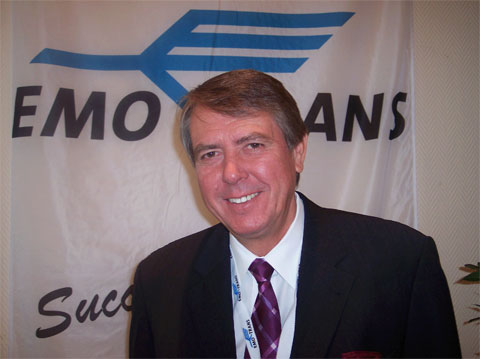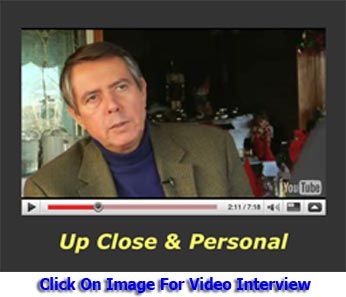 |
 |
|
| |
||
|
Vol. 8 No. 18 WE COVER THE WORLD Wednesday February 11, 2009 |
TSA Rules Need
Understanding Stimulus
This is what happens when government
in its zeal and ineptitude, driven by politicians vying for TV cameras at
any price and doing what they perceive will get them re-elected, pass the
“Implementing Recommendations of the 9/11 Commission Act of 2007”
mandating screening of all air cargo on passenger aircraft. They collectively
mess around with a transportation mechanism that has taken the industry 60
years to slowly fine tune, which they don’t understand!
They can call meetings and involve the shipping
community, but the result, while maybe well-intended, is a Swiss Emmentaler
cheese of loopholes and opportunistic lawyers’ bonanza, of which at
this point just over one week into 50% screening of all belly cargo in USA,
we have only seen the tip of the iceberg.
The Certified Cargo Screening Program - CCSP
– we love our acronyms, invited integral members of the trade community
to join this program in order to alleviate bottlenecks at the airport because
the airlines and their ground handlers do not have the space and manpower
to handle the screening for the entire trade onsite.
With this program TSA aims to ensure that each
member in the trade chain has proper training for the screening of the cargo
to the box level, corresponding to passenger baggage currently screened by
TSA.
Simple and straightforward, right?
The CCSP authorizes facilities to become certified
cargo screening facilities (CCSF) once they have been vetted, validated, and
TSA-certified to screen air cargo.
The CCSP also requires that a CCSF apply stringent
chain of custody methods to safeguard previously screened cargo as it travels
through the air cargo supply chain prior to being loaded onto and transported
on a passenger aircraft.
As we all know, these measures imply additional
handling and thus additional costs.
While the ‘piece level’ screening
appears to illustrate the determination behind the program, the reality of
breaking down a skid to screen each carton or box individually, re-label and
reassemble onto a skid does slow down the whole process significantly, no
matter which method is employed—be it explosive sniffing dogs, technology
(ETD – explosive trace device) or other alternatives.
So now to the money side of things; one example,
DHL Global Forwarding, as published on their website will “add a CCSP
security surcharge (CSF) on every shipment tendered to DHL Global Forwarding.
“A fee of US$2.00 per piece with a minimum
of $10.00 per shipment will be implemented on February 2, 2009.”
On the other hand, because of current business
pressures, as reported in Air Cargo News FlyingTypers, on February
6, 2009, Lufthansa Cargo discontinued its security screening fee, as suspected
for competitive reasons.
The optimist can argue that these are market
forces at play and it shall sort itself out in due course.
The pessimist, on the other hand, can equally
claim this will end up being bad for business as it will add another level
of confusion to shipping.
In the heady rush to dictate and spur the industry
into action, deadlines were set which the various players had to meet. Airlines,
ground handlers, freight forwarders and third parties invested large sums
of money they didn’t have, to buy whatever equipment the vendors showcased
and touted as the most effective alternative.
Why couldn’t the TSA with its vast resources
have conducted its own testing under much more favorable terms and proffered
a list of “approved devices and/or methods” in the first place
in parallel with the program?
And I seem to recall the industry has a standard
setting trade association in IATA that could have pooled resources together
with the ATA to use its institutional knowledge and expertise in the service
of the members.
So now apparently lawyers eager to conjure up
fees in flagging economic times in the guise of being protective of their
freight forwarder clients are pushing consent forms to be signed by shippers
which ostensibly authorize the freight forwarder or the CCSF to perform the
screening.
Well, I said it before and I’ll say it
again, I am not a lawyer, but when the mandate to screen is passed by Congress,
why would additional permission and forms be necessary?
We are only a few days into the program and
more is yet to come as time goes by. Why can’t the TSA employ or contract
a few retired cargo managers with 30-40 years of airfreight experience under
their belt to help shape a regime which while fulfilling its mandate will
actually add value rather than just cost?
Let me know your suggestions and we’ll
take it from there!
Ted Braun
 "EMO
Trans has taken the necessary steps to adhere to every government regulation
while protecting their customers’ interests for smooth and expeditious
handling of all cargo."
"EMO
Trans has taken the necessary steps to adhere to every government regulation
while protecting their customers’ interests for smooth and expeditious
handling of all cargo."
While others may be throwing their hands in
the air professing bewilderment and exasperation as economic downturn timeline
moves from earlier predictions of a few months to possibly a few years, Joachim
“Jo” Frigger, CEO of EMO Trans based near JFK International Airport
in New York says that he is “cautiously optimistic.”
“EMO Trans began providing professional
air freight services in Germany in 1965 and has been around long enough at
this point to have experienced every manner of bust and boom in air cargo.
"We know that in order to be successful
you must offer total capabilities to include virtually every facet of worldwide
shipping.
"Despite the current global challenges
we remain confident in our abilities to weather any situation based on our
ongoing commitment to providing door-to-door solutions for each individual
customer.
"In a business where creativity is often
the key to problem solving, there is no substitute for human ingenuity.”
There is plenty to recommend about Jo Frigger.
 Aside
from putting the emotion in EMO Trans, Mr. Frigger is actively outspoken and
remarkably consistent about what he says talking air cargo.
Aside
from putting the emotion in EMO Trans, Mr. Frigger is actively outspoken and
remarkably consistent about what he says talking air cargo.
Several months ago he told us that the TSA Mandates
just applied, “will inevitably lead to rising costs and somebody will
have to pay for pushing the goods through an x-ray machine. “Medium
sized and also smaller players will have to come up with smart and cost-efficient
solutions.
“Generally speaking I can say that air
freight will become more expensive due to the screening requirements.
“Ultimately the cargo will have to pay
for the costs, not unlike passengers for their tickets.
“We would prefer that the TSA performs
the screening, like they do with luggage and passengers.
“This whole procedure disadvantages the
medium and small forwarders.
“Even if forwarders do the screening,
the liability issue is unresolved should a catastrophic incident occur.
“In a broader sense the best way to insure
workable global air cargo security is for everyone to utilize best practices
and maybe even more importantly for the dialogue to ramp up between nations
for a major exchange of ideas as all of us work to get security right.
“Everyone’s future depends on getting
cargo security right.”
Our conversation continues here with Jo Frigger
live and in living color in a video created just as 2009 was about to begin
covering a wide range of topics.
The central theme that runs though all of this,
is Air Cargo Jo, speaking straight from the shoulder, right from the heart.
In these days when often the message is confused,
straight talk like a breath of fresh air is welcome and in many ways unique.
Geoffrey